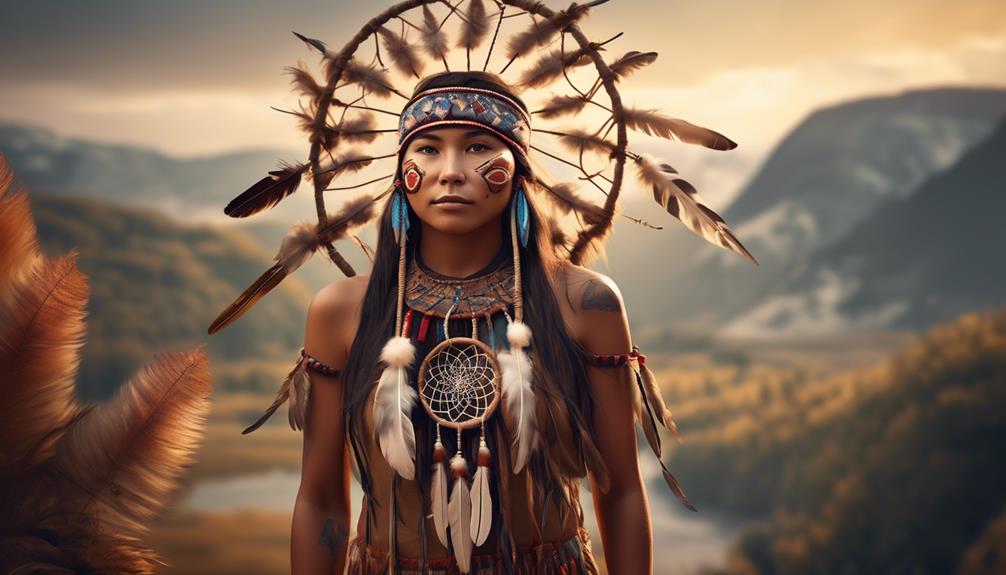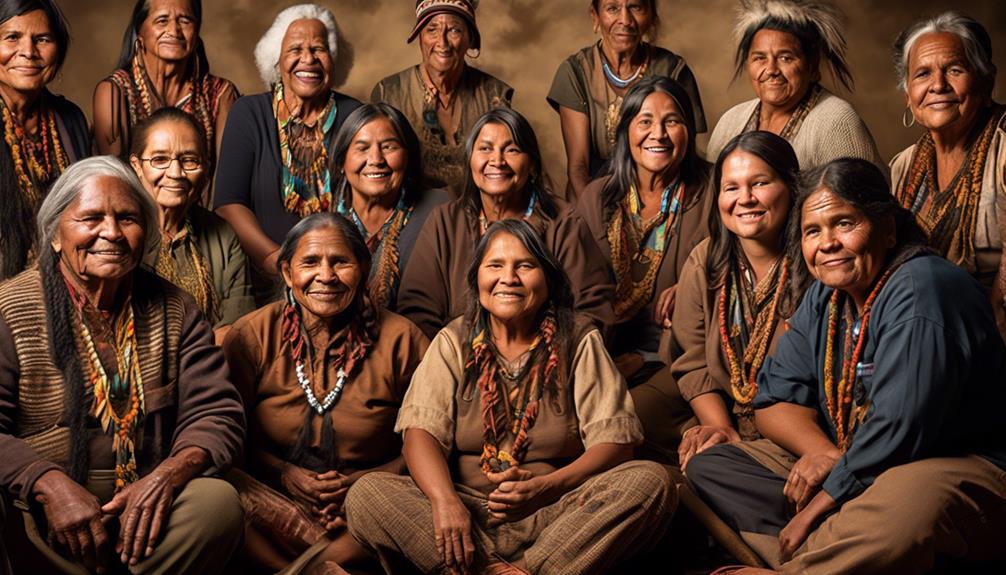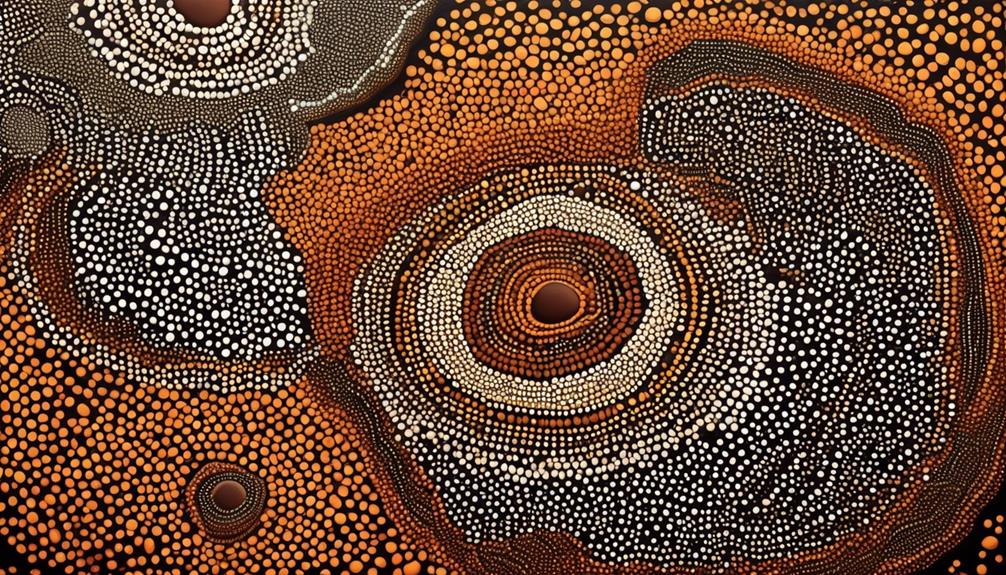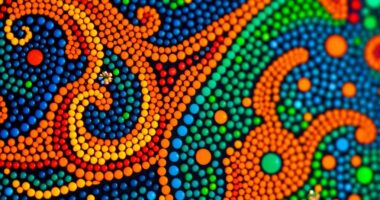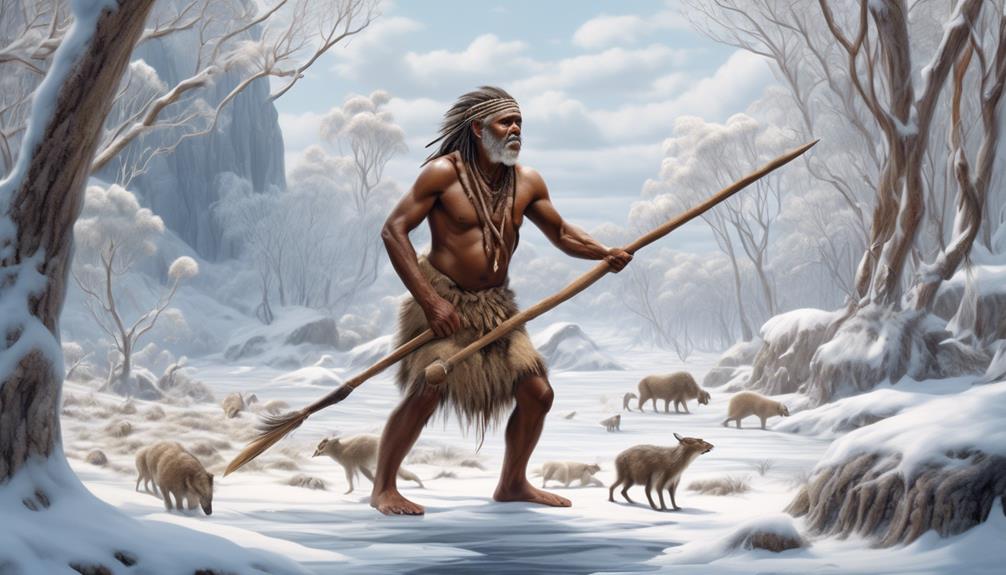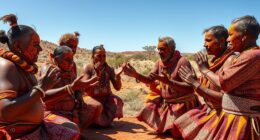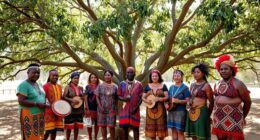Have you ever thought about whether you are part of an indigenous group? You may have encountered this term used to refer to specific cultural communities, but you may be unsure about how it relates to your own identity.
The concept of indigenous identity is complex and multifaceted, encompassing a diverse range of cultures and traditions. As you consider this question, it's essential to explore the various factors that contribute to indigenous identity and the significance of ancestral connections.
Understanding this topic not only sheds light on your own heritage but also encourages a deeper appreciation for the rich tapestry of indigenous cultures worldwide.
Key Takeaways
- Indigenous identity is a complex and personal journey influenced by cultural, historical, and societal factors, requiring an understanding and honoring of ancestral belonging.
- Ancestral connections and heritage are important aspects of Indigenous identity, involving the honoring of traditions, passing down cultural knowledge, revitalizing endangered practices, and embracing Indigenous heritage.
- Colonization has had a profound impact on Indigenous communities, disrupting traditional ways of life, leading to the loss of language, customs, and practices, and creating a disconnection from cultural and spiritual heritage, as well as a struggle for land rights and environmental protection.
- Diverse Indigenous cultures worldwide contribute to the preservation of traditions through cultural preservation, possess traditional knowledge, exhibit language diversity, enrich the world with deep-rooted traditions, and reflect a profound understanding of the natural world.
Defining Indigenous Identity
Defining Indigenous identity is a complex and deeply personal journey that encompasses cultural, historical, and societal factors. It's about understanding and honoring ancestral belonging while navigating the complexities of modern society. For many Indigenous individuals, it involves a continuous effort to preserve and celebrate their cultural heritage amidst the pressures of assimilation and globalization.
Ancestral belonging is at the core of Indigenous identity. It's a profound connection to the land, traditions, and customs passed down through generations. This sense of belonging isn't merely a historical legacy but a living, breathing part of Indigenous identity, shaping beliefs, values, and a way of life. Cultural preservation becomes a crucial aspect, as it's through the preservation of language, art, and ceremonies that Indigenous communities maintain their unique identity and resilience in the face of external influences.
Understanding Indigenous identity requires empathy, humility, and a willingness to learn from the diverse experiences within Indigenous communities. It's a journey of mutual respect and understanding, acknowledging the deep roots of ancestral belonging and the ongoing commitment to cultural preservation.
Ancestral Connections and Heritage
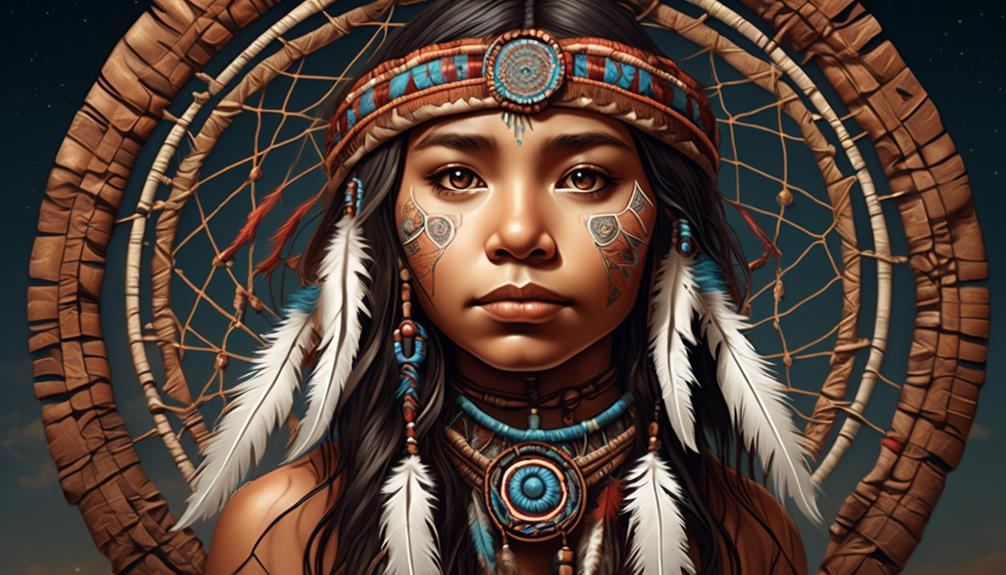
Navigating your ancestral connections and heritage is a deeply personal journey that intertwines with the preservation of Indigenous identity, encompassing the traditions and customs passed down through generations. Understanding your ancestral traditions is a vital aspect of embracing your Indigenous heritage. It involves delving into the historical practices, rituals, and beliefs that have shaped your cultural identity over centuries.
- Honoring Ancestral Traditions: Respecting and upholding the rituals, ceremonies, and ways of life that have been practiced by your ancestors for generations is essential in maintaining a strong connection to your Indigenous heritage.
- Passing Down Cultural Knowledge: Sharing the knowledge and wisdom inherited from your ancestors with younger generations ensures the continuation of cultural preservation, fostering a sense of pride and belonging in the community.
- Revitalizing Endangered Practices: Actively participating in efforts to revitalize endangered ancestral traditions, languages, and crafts plays a pivotal role in safeguarding the rich cultural tapestry of Indigenous communities for the future.
Embracing your ancestral connections and heritage not only enriches your own sense of identity but also contributes to the collective preservation of Indigenous cultures worldwide.
Impact of Colonization on Indigenous Communities
The impact of colonization has profoundly shaped the experiences and realities of Indigenous communities across the globe, leaving enduring effects on their cultural, social, and economic landscapes. Colonization disrupted traditional ways of life, leading to the loss of language, customs, and practices that had been passed down through generations. This has posed significant challenges to the cultural preservation of Indigenous communities, as they strive to reclaim and revitalize their traditions in the face of historical trauma.
Furthermore, the imposition of new land ownership systems by colonizers has had a profound impact on Indigenous land rights. Many Indigenous communities have faced displacement from their ancestral lands, resulting in a disconnection from their cultural and spiritual heritage. The struggle for land rights continues to be a central issue for Indigenous peoples, as they seek to regain control over their territories and protect the environment in accordance with their traditional beliefs.
The enduring effects of colonization on Indigenous communities highlight the resilience and strength of these groups as they work towards reclaiming their cultural identity and land rights in the present day.
Diverse Indigenous Cultures Worldwide

Exploring the rich tapestry of indigenous cultures worldwide reveals a remarkable diversity of traditions, languages, and customs that have endured through generations. Indigenous communities have preserved their unique ways of life, enriching the world with their deep-rooted traditions and knowledge.
- Cultural Preservation: Indigenous cultures have safeguarded their traditions by passing down stories, rituals, and art forms from one generation to the next. This commitment to cultural preservation ensures that ancient practices remain alive and relevant in today's world.
- Traditional Knowledge: Indigenous communities possess a wealth of traditional knowledge, encompassing sustainable agricultural practices, medicinal remedies, and ecological wisdom. This knowledge reflects a profound understanding of the natural world and the interconnectedness of all living beings.
- Language Diversity: The world's indigenous cultures are home to a vast array of languages, each representing a unique way of experiencing and understanding the world. These languages encapsulate the essence of indigenous identity and provide invaluable insights into the cultural heritage of their respective communities.
The resilience and diversity of indigenous traditions serve as a testament to the richness of human experience and the importance of preserving cultural heritage for future generations.
Embracing Indigenous Perspectives
Embracing Indigenous Perspectives invites a profound reevaluation of our understanding of the world and the wisdom embedded within diverse indigenous cultures. It emphasizes the importance of community inclusion and cultural preservation. By actively involving indigenous communities in decision-making processes and acknowledging their traditional knowledge, we can ensure that their perspectives are respected and upheld.
Incorporating indigenous perspectives into modern practices allows for the traditional knowledge to find modern applications. This integration can lead to innovative solutions that benefit not only indigenous communities but society as a whole.
It's crucial to recognize that indigenous cultures possess invaluable insights into sustainable living, holistic wellness, and environmental stewardship that can inform and enrich contemporary approaches.
Frequently Asked Questions
What Are Some Common Misconceptions About Indigenous Identity?
Common misconceptions about indigenous identity include the idea that it's monolithic, ignoring the diverse cultures and histories within indigenous communities.
Another misconception is that indigenous people are relics of the past, disregarding their vibrant cultural resilience and contributions to modern society.
It's crucial to understand the complexity and richness of indigenous identities, acknowledging their enduring strength and agency in the face of historical and ongoing challenges.
How Do Indigenous Communities Maintain Their Ancestral Connections and Heritage in Modern Society?
In modern society, indigenous communities maintain their ancestral connections and heritage through intergenerational knowledge transfer and cultural revitalization.
It's like a beautiful tapestry woven with threads of wisdom passed down through generations, ensuring that traditions and customs remain vibrant and alive.
The deep respect for ancestral wisdom and the deliberate effort to preserve cultural practices create a strong foundation for indigenous communities to thrive and flourish in the present day.
What Are Some Long-Term Effects of Colonization on Indigenous Communities That Are Still Felt Today?
Long-term effects of colonization on indigenous communities are still felt today.
Intergenerational trauma and cultural erasure have deeply impacted these communities. The trauma of past injustices has been passed down through generations, affecting mental health and well-being.
Additionally, the loss of cultural identity and practices due to colonization continues to create challenges.
Understanding and addressing these ongoing effects is crucial for supporting indigenous communities in healing and preserving their heritage.
Can You Provide Examples of Lesser-Known Indigenous Cultures From Around the World?
When it comes to lesser-known indigenous cultures, there are countless examples of rich traditions and cultural preservation efforts around the world.
From the Ainu in Japan and the Maori in New Zealand to the Sami in Scandinavia and the Mapuche in South America, each group has unique indigenous traditions that are integral to their identity.
Understanding and appreciating the diversity of indigenous cultures is essential for fostering respect and appreciation for their heritage.
How Can Non-Indigenous Individuals Better Understand and Support Indigenous Perspectives and Experiences?
To better understand and support indigenous perspectives, non-indigenous individuals should actively listen, educate themselves on indigenous history and culture, and acknowledge their privilege.
By seeking out diverse indigenous voices, engaging in meaningful dialogue, and advocating for indigenous rights, you can contribute to a more inclusive and equitable society.
It's important to recognize the impact of colonization and systemic oppression, and work towards dismantling these barriers to support indigenous communities.
Conclusion
You are like a tree, deeply rooted in the rich soil of your ancestral heritage.
Just as the branches of a tree reach out in many directions, so too do the diverse cultures and perspectives of Indigenous communities worldwide.
Despite the storms of colonization, your resilience and strength continue to stand tall, embracing the warmth of the sun and the nourishment of the earth.
Your identity is a living testament to the enduring spirit of Indigenous peoples.
